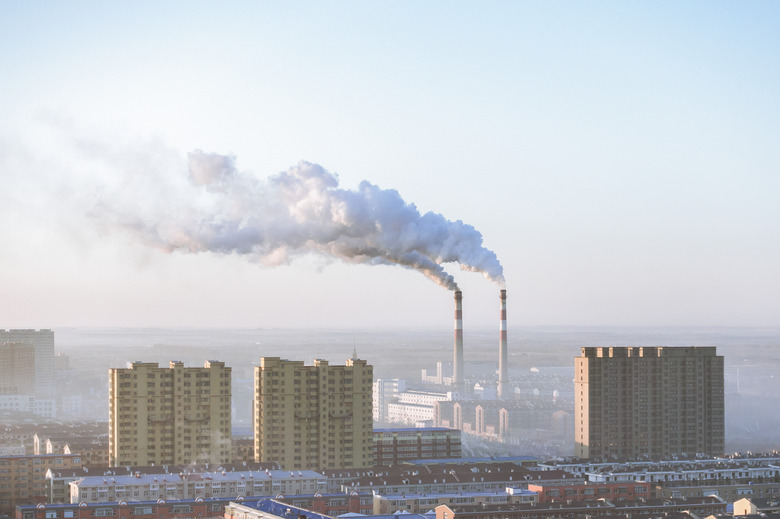What Human Activities Affect The Carbon Cycle?
The carbon cycle involves the movement of carbon between the atmosphere, biosphere, oceans and geosphere. Since the Industrial Revolution approximately 150 years ago, human activities such as the burning of fossil fuels and deforestation have begun to have an effect on the carbon cycle and the rise of carbon dioxide in the atmosphere. Human activities affect the carbon cycle through emissions of carbon dioxide (sources) and removal of carbon dioxide (sinks). The carbon cycle can be affected when carbon dioxide is either released into the atmosphere or removed from the atmosphere.
Burning of Fossil Fuels
Burning of Fossil Fuels
When oil or coal is burned, carbon is released into the atmosphere at a faster rate than it is removed. As a result, the concentration of carbon dioxide in the atmosphere increases. Natural gas, oil and coal are fossil fuels that are commonly burned to generate electricity in power plants, for transportation, in homes and in other industrial complexes. The primary industrial activities that emit carbon dioxide and affect the carbon cycle are petroleum refining, paper, food and mineral production, mining and the production of chemicals.
Carbon Sequestration
Carbon Sequestration
When plants remove carbon dioxide from the air and store it, the process is called carbon sequestration. Agricultural and forestry methods can affect how much carbon dioxide is removed from the atmosphere and stored by the plants. These sinks of carbon dioxide can be farms, grasslands or forests. Human activity in managing farmland or forests affects the amount of carbon dioxide removed from the atmosphere by plants and trees. These sinks of carbon dioxide affect the carbon cycle by decreasing the amount of carbon dioxide in the air.
Deforestation
Deforestation
Deforestation is the permanent removal of trees from forests. Permanent removal of the trees means new trees will not be replanted. This large-scale removal of trees from forests by people results in increased levels of carbon dioxide in the atmosphere because trees are no longer absorbing carbon dioxide for photosynthesis. As a result, the carbon cycle is affected. According to National Geographic, agriculture is the primary cause of deforestation. Farmers remove trees on a large-scale basis to increase acreage for crops and livestock.
Geologic Sequestration
Geologic Sequestration
Human activity can affect the carbon cycle by capturing carbon dioxide and storing it underground rather than permitting it to be released into the atmosphere. This process is called geologic sequestration. According to the U.S. Environmental Protection Agency, geologic sequestration could retain large quantities of carbon dioxide for extended periods of time and consequently reduce the concentrations of carbon dioxide above-ground.
Cite This Article
MLA
Girard, Laurence. "What Human Activities Affect The Carbon Cycle?" sciencing.com, https://www.sciencing.com/what-human-activities-affect-the-carbon-cycle-12083853/. 22 November 2019.
APA
Girard, Laurence. (2019, November 22). What Human Activities Affect The Carbon Cycle?. sciencing.com. Retrieved from https://www.sciencing.com/what-human-activities-affect-the-carbon-cycle-12083853/
Chicago
Girard, Laurence. What Human Activities Affect The Carbon Cycle? last modified March 24, 2022. https://www.sciencing.com/what-human-activities-affect-the-carbon-cycle-12083853/
